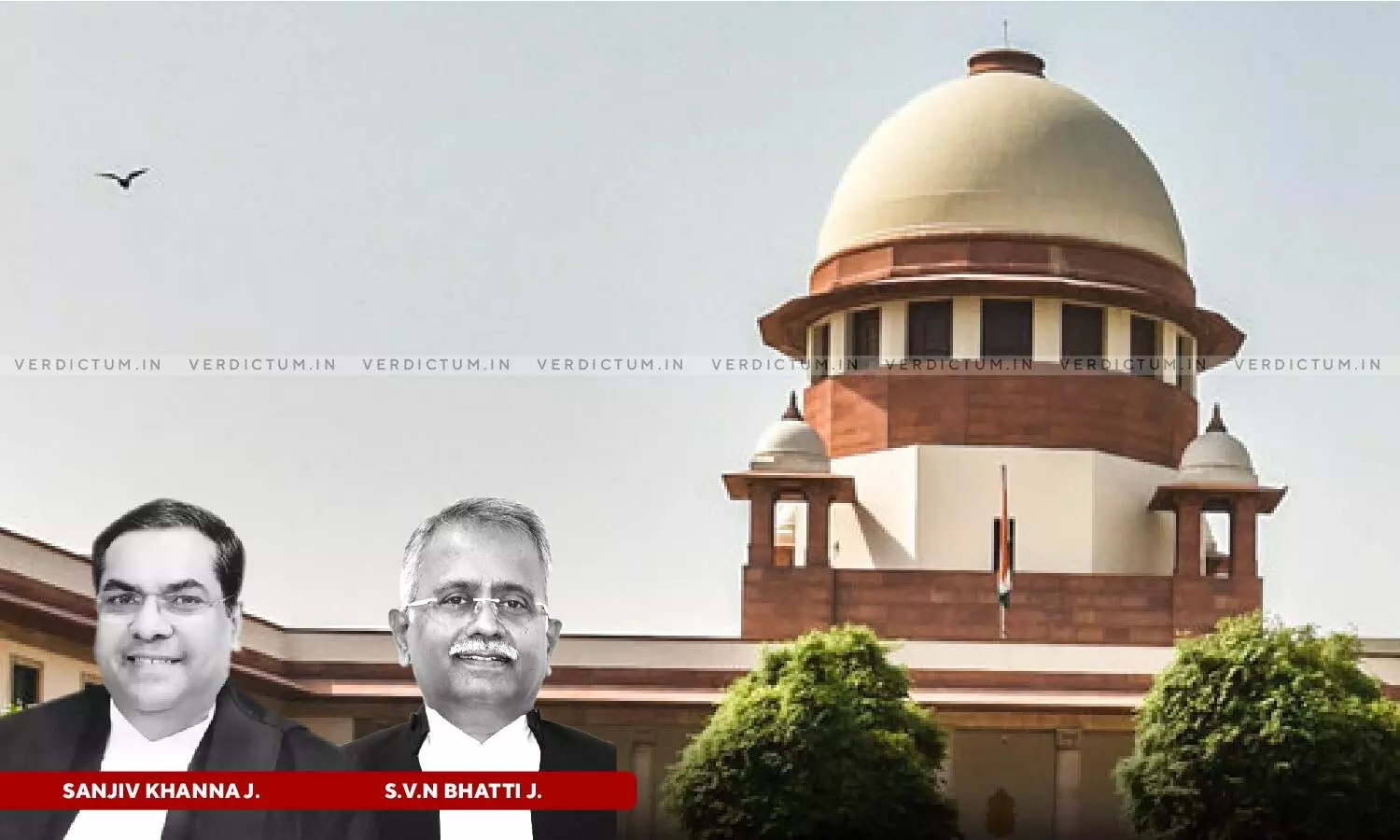
Supreme Court Reduces Conviction From Section 302 To 304 (Part 1) IPC Considering That Motive Of Convict Was Need Of Money For Funeral Expenses
 |
|The Supreme Court has converted the conviction of a man from Section 302 IPC (Punishment for murder) to that under Section 304 Part-I of the IPC (Culpable homicide not amounting to murder) owing to the motive and the reason behind the said crime. The bench noted the fact that the appellant-convict had to collect money to bear the funeral expenses of a family member. The bench also took note of the fact that both the convict and deceased belonged to the Adivasi Tribe.
In the impugned judgment, the Orissa High Court had sustained the conviction of the appellant under Section 302 of the Indian Penal Code, 1860 for murder and had sentenced the appellant to rigorous imprisonment for life with a fine of ₹ 10,000/-, and in default, undergo additional rigorous imprisonment for two years.
Therefore, having regard to the fact that the appellant has already suffered actual incarceration for over six years, a bench of Justice Sanjiv Khanna and Justice S,V.N Bhatti observed, “…we are of the view that the conviction of the appellant – Sarathi Banichor should be converted from one under Section 302 of the IPC to that under Section 304 Part-I of the IPC. We have formed our opinion after having gone into the motive and the reason as to why the occurrence had taken place. There was a bereavement/death in the family and money had to be collected for funeral expenses etc. Suggestions were also exchanged with regard to the sale of land. A single blow was given by the appellant - Sarathi Banichor, which resulted in the death of Krushna Banichor. The appellant – Sarathi Banichor, as well as the deceased - Krushna Banichor, belong to the Adivasi tribe”.
The bench further directed that the sentence undergone by the appellant would be adequate substantive punishment for the offence under Part-I of Section 304 of the IPC. However, subjected the appellant to a fine of ₹ 5,000 and in case of default of payment of fine, will undergo a simple imprisonment for one month.
AOR Aparna Jha appeared for the appellant and AOR Shovan Mishra appeared for the respondent
The trial court had held that the prosecution had proved the guilt of the appellant beyond all reasonable doubt and accordingly, convicted him of the offence punishable under Section 302 IPC while sentencing him to undergo rigorous imprisonment (RI) for life and to pay a fine of Rs.10,000/- in default to undergo RI for a further two years.
This was a case based on eyewitness testimony where the widow of the deceased was the key witness for the prosecution while the son-in-law of the Informant was the other important witness. The trial court found that the eye-witness testimony of deceased’s wife (PW 3) was completely corroborated by the medical evidence by P.W.2 who conducted the postmortem of the deceased. It was also noted that although the deceased, the accused and the informant were closely related and staying in close proximity, the testimonies of the witnesses were held to be trustworthy and consistent.
The appellant herein was the nephew of the deceased’s wife, who dealt a blow on the forehead of the deceased with a piece of wood while he was washing his hands. As a result, the deceased sustained serious bleeding injuries and fell down.
As per the testimonies of the wife, eight months previous to the date of deposition, P.W.1 (elder brother of the deceased and also the informant) had called them and the son-in-law after the death of his wife to discuss how the funeral ceremony expenses were to be shouldered. She had further stated there was a partition of the joint family property between her husband and his brother where both of them were selling properties falling to the respective shares, however the same was objected to by the appellant. On which the Court in the impugned order had noted, “Otherwise, as regards the incident itself and the role of the accused, there was no answer elicited during the cross-examination of P.W.3 which could persuade the Court to disbelieve her testimony”.
Therefore, a bench of Chief Justice S. Muralidhar and Justice R.K. Pattanaik while dismissing the appeal had observed, “It is well settled that even one eye-witness who is reliable and consistent is sufficient to prove the case of the prosecution in a case of direct evidence. P.W.3 fits this description rather well… having carefully examined the evidence on record, the Court is satisfied that the trial court has committed no error in convicting and sentencing the Appellant-Accused for the offence punishable under Section 302 IPC”.
Accordingly, while setting aside the impugned judgment, the bench partly allowed the appeal.
Cause Title: Sarathi Banichor v. State Of Orissa
Click here to read/download the Order